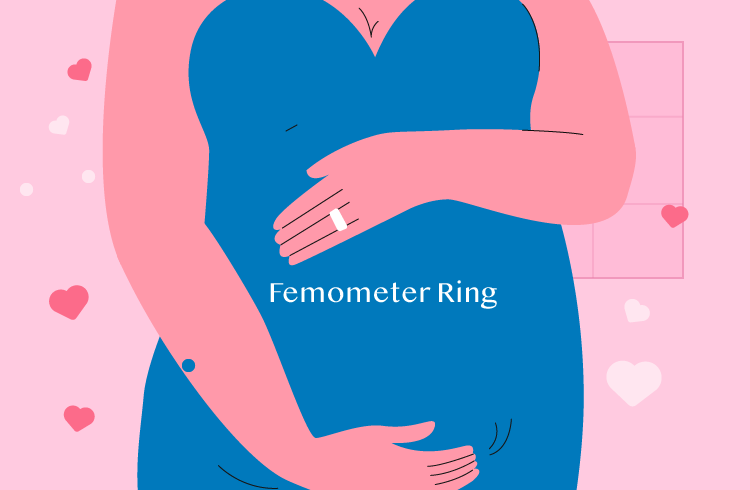The journey to parenthood is a profound and often eagerly anticipated chapter in many individuals' lives. Yet, this journey can come with its fair share of challenges, particularly for women who grapple with irregular periods. Irregular menstruation can be perplexing, but it does not diminish the hopes of conceiving.
Challenges Faced by Women with Irregular Periods
The challenges faced by women dealing with irregular periods can be complex and can impact various aspects of their lives.
Unlike those with regular and predictable cycles, women with irregular periods often find it challenging to anticipate the arrival of their next period accurately. This unpredictability can be emotionally taxing, leading to heightened anxiety and stress.
Additionally, irregular periods can thwart family planning efforts. Couples aspiring to conceive may struggle to identify the optimal time for intercourse, as the absence of a regular menstrual cycle makes it difficult to pinpoint the fertile window.
Furthermore, menstrual irregularities can be a source of discomfort and inconvenience. Women with irregular periods may experience heavier or prolonged bleeding, accompanied by painful cramps. These physical symptoms can be physically draining and adversely affect daily life.
Defining Irregular Periods
Irregular periods, medically known as oligomenorrhea or anovulatory cycles, refer to menstrual cycles that deviate from the typical 28-day cycle. While the duration between periods may vary for each woman, irregular periods usually present significant fluctuations in cycle length, even exceeding 35 days. Irregular periods can manifest as infrequent menstruation, where the gaps between cycles are prolonged, or as unpredictable episodes of bleeding.
Irregular periods can also involve alterations in the volume and duration of menstrual flow. Some women may experience abnormally light periods, while others endure heavy and prolonged bleeding. The accompanying symptoms, such as severe cramps, bloating, or nausea, can exacerbate the distress associated with irregular menstruation.
Exploring the Culprits Behind Irregular Cycles
1. Polycystic Ovarian Syndrome (PCOS)
PCOS is a prevalent hormonal disorder affecting many women of reproductive age. It can disrupt ovulation, leading to irregular periods or even prolonged periods of no menstruation. For women with PCOS, inositol supplements have shown promise in restoring hormonal balance and regulating menstrual cycles.
2. Thyroid Imbalance
An underactive or overactive thyroid gland can disrupt the delicate balance of hormones required for regular menstruation. It's essential to have your thyroid function tested if you suspect an issue. Thyroid medication or treatment, as prescribed by a healthcare provider, can often restore regular cycles.
3. Primary Ovarian Insufficiency (POI)
Also known as premature ovarian failure, POI occurs when the ovaries cease to function normally before the age of 40. Irregular periods and infertility are common symptoms. While POI is irreversible, assisted reproductive technologies like IVF may still offer a chance at pregnancy.
4. Obesity & Underweight
Extremes in body weight can wreak havoc on menstrual regularity. Obesity can lead to hormonal imbalances, while being significantly underweight can result in the cessation of menstruation. Achieving a healthy weight through balanced nutrition and exercise can restore regular cycles.
5. Hyperprolactinemia
Elevated levels of the hormone prolactin, often due to a benign tumor in the pituitary gland, can disrupt ovulation and menstruation. Medications to lower prolactin levels may be prescribed to restore regular cycles.
Pregnancy Potential with Irregular Periods
Can you still get pregnant with irregular periods? The answer is an unequivocal yes. Irregular periods do not negate the possibility of conception; they merely add an extra layer of complexity to the journey towards parenthood. Understanding the dynamics of fertility and menstruation is crucial to navigating this path successfully.
Pregnancy hinges on the occurrence of ovulation, the release of a mature egg from the ovaries. While women with regular menstrual cycles often ovulate around the midpoint of their cycle, the timing of ovulation for those with irregular periods can be less predictable. However, it's important to note that ovulation can still occur, albeit irregularly.
Even in cases of irregular periods, there are windows of fertility when conception becomes possible. These windows may not conform to the textbook 14th day of the menstrual cycle, but they exist, nonetheless. Irregular ovulation can make identifying these fertile windows more challenging, but it doesn't render conception impossible.
Intriguingly, some women with irregular periods may experience sporadic episodes of heightened fertility. During these phases, their bodies may release an egg, presenting a unique opportunity for conception. It's essential to stay attuned to the body's signals and seize these opportunities when they arise.
What Is Ovulation and Why Is It Crucial for Conception?
Ovulation is a pivotal event in the menstrual cycle, marking the release of a mature egg from the ovaries. This fertile window typically occurs midway through the menstrual cycle, around day 14 for women with regular 28-day cycles. During ovulation, the egg is primed for fertilization and awaits the arrival of sperm. If sperm successfully meets the egg during this brief window, conception can take place.
Understanding when ovulation occurs is vital because it signifies the days when pregnancy is most likely to happen. Missing this window can significantly reduce the chances of conception. For women with irregular cycles, identifying ovulation can be trickier since the timing varies. Nonetheless, it is crucial to recognize that ovulation can still occur, even if it is irregular or sporadic.
Common Signs of Ovulation: Decoding Your Body's Clues
Monitoring your body for signs of ovulation is a proactive step toward enhancing your fertility, especially if you contend with irregular nperiods. Several indicators can help you identify the occurrence of ovulation:
Cervical Mucus Changes
Pay close attention to your cervical mucus throughout your menstrual cycle. As you approach ovulation, your cervical mucus becomes clear, slippery, and stretchy, resembling raw egg whites. This fertile-quality mucus facilitates sperm transport and provides an environment conducive to fertilization.
Basal Body Temperature (BBT) Shift
Tracking your basal body temperature is another valuable method. Your BBT is your body's temperature at rest. After ovulation, due to hormonal changes, your BBT typically rises slightly and remains elevated until your next period. Charting these temperature shifts over several months can help you identify a pattern and predict when ovulation may occur.
Product suggested: Experience seamlessly BBT tracking with Femometer Smart Ring for Women
LH Surge Occurrence
An LH surge leads to ovulation within 24-48 hours. It can be detected using serum or urine ovulation predictor kits (OPKs). For those with irregular cycles, these kits can be especially beneficial in confirming the fertile window. Digital solutions, such as the IVY 103 OPK tend to provide greater accuracy, very quickly and take away the quess work from trying to establish if you have a surge in LH or not.
Product suggested: Femometer's Best Selling OPK: IVY103 Ovulation Predictor Kit
Alternative Tracking Methods
Besides these methods, alternative approaches like monitoring cervical position and even tracking changes in libido can provide additional clues about your ovulation. While these methods might require a bit more observation and patience, they can be effective for women with irregular cycles.
Women with irregular menstrual cycles can successfully track ovulation and enhance their chances of conception with the right methods and tools. Whether you choose to chart your BBT, analyze cervical mucus, use OPKs, or rely on smartphone apps, consistency and patience will be your allies on this fertility journey. Remember that every cycle is a step closer to understanding your unique rhythm and getting closer to your goal of becoming a parent.
Embracing Lifestyle Changes for a Faster Conception
While addressing the underlying causes of irregular cycles is essential, making positive lifestyle changes can significantly boost your chances of conceiving more quickly:
1. Eat Healthily: A balanced diet rich in nutrients, especially folic acid, can enhance fertility. Consider adding more fruits, vegetables, whole grains, and lean proteins to your meals.
2. Exercise Frequently: Regular physical activity not only helps with weight management but also supports overall health and hormonal balance. However, avoid excessive exercise, as it can have the opposite effect on menstrual regularity.
3. Rest & Sleep: Prioritize adequate rest and quality sleep. Sleep plays a crucial role in regulating hormones, and a well-rested body is better equipped for conception.
4. Stress Management: High stress levels can disrupt hormonal balance and ovulation. Explore stress-reduction techniques like yoga, meditation, or mindfulness to promote relaxation.
5. Increase the Frequency of Intercourse: When you have irregular cycles, it can be challenging to predict your fertile window accurately. To maximize your chances of conception, consider increasing the frequency of intercourse throughout your cycle, rather than focusing solely on ovulation.
In conclusion, irregular menstrual cycles can be a hurdle on your journey to conception, but they are not insurmountable. Understanding the underlying causes, seeking appropriate medical guidance, and making positive lifestyle changes can help regulate your cycles and increase your chances of achieving that cherished pregnancy. Remember that each step you take brings you closer to your goal of becoming a parent, and your determination and resilience are your greatest assets on this path.
This article is the original creation of Femometer. All rights reserved by Femometer Inc. To reproduce, distribute, or reference the content, please reach out to us in advance to prevent any potential legal issues. Copyright © Femometer Inc.










